Here’s Why Insomnia Gets Worse This Time of Year
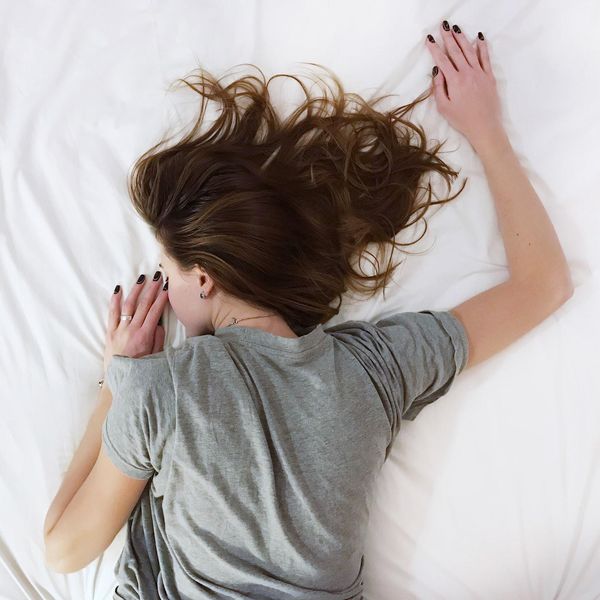
If you find yourself feeling a little bit off this time of year, or maybe you're tossing and turning in bed more than usual and then waking up groggy, you’re not alone. The lack of sunlight we’re getting during the winter can really mess with our hormones, especially our melatonin levels, the sleep regulator. This can seriously cause a case of the winter blues (which can range from simply feeling a bit down, to full-blown seasonal affective disorder). That’s right — that feeling is not just in your imagination, and the fluctuation in hormones can have a real impact on your sleeping habits and sense of calmness. We asked sleep and mental health experts to further explain the connection between insomnia and the winter months and the effect sleep has on our overall mood and energy. Keep reading for the tips and tricks you need to keep your sleep schedule on track and your wellbeing in check during what *should* be the most peaceful season.
Why Insomnia Happens
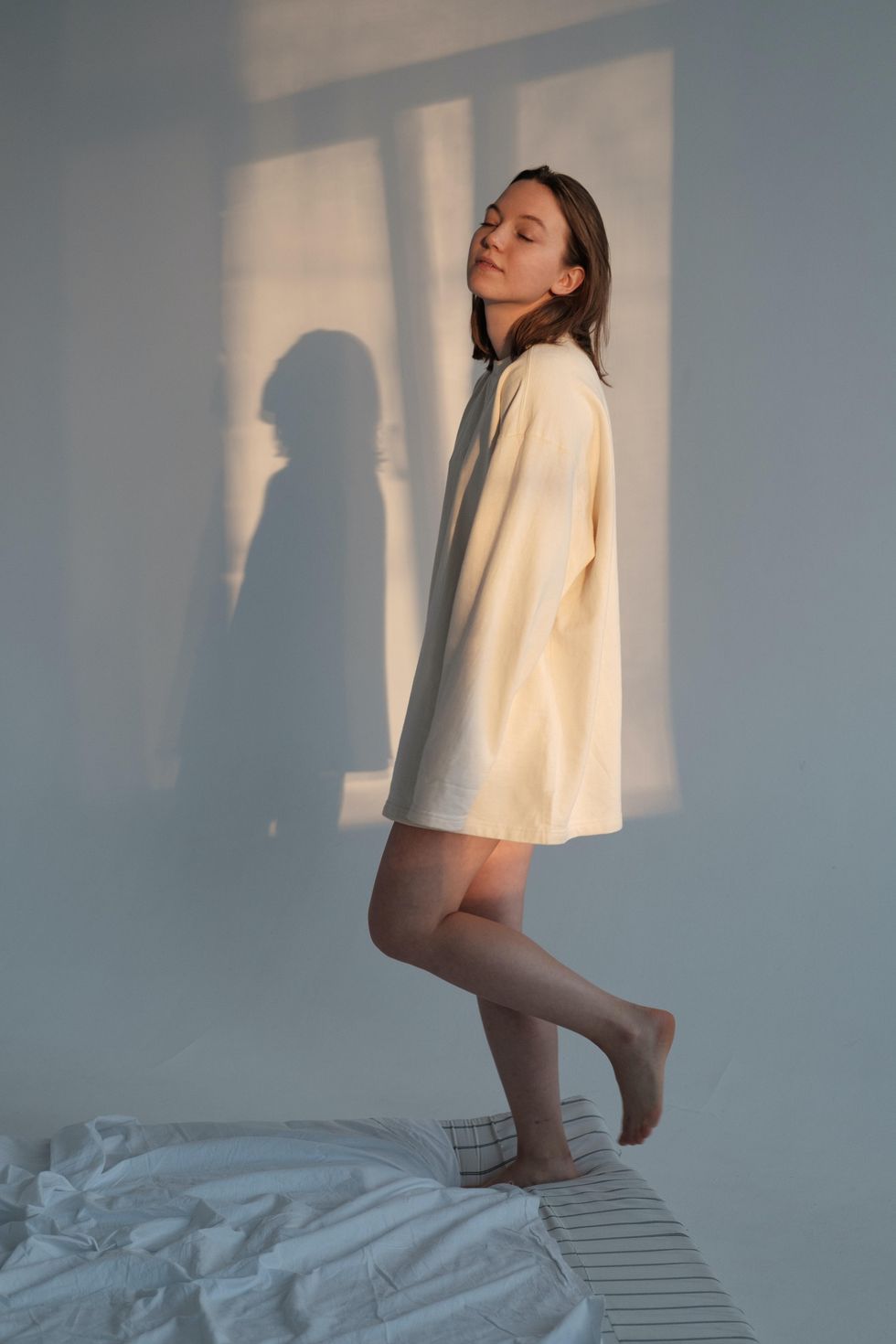
Photo by Alena Shekhovtcova / PEXELS
Our bodies are designed to wake with the sunlight, and when the sun rises later and sets earlier, our circadian rhythms (the body clock that regulates our sleeping and waking and can even affect things like our mood and menstrual cycle) can get out of whack.
“In winter, waking up when it is dark prevents our ‘wake cycle’ from starting. Sunlight essentially triggers our wakefulness, which needs to complete its cycle before hormones that induce sleep (such as melatonin) can be released,” explains Katharina Lederle, a London-based doctor of human sleep physiology.
Melatonin imbalances can cause depressive symptoms as well. Too much melatonin may be one of the culprits of seasonal affective disorder, says Nada Milosavljevic, a faculty member at Harvard Medical School and founder of Sage Tonic.
While this may not cause insomnia, it may have similar after-effects: a heavy layer of grogginess and the inability to engage with others as usual or stay energized throughout the day.
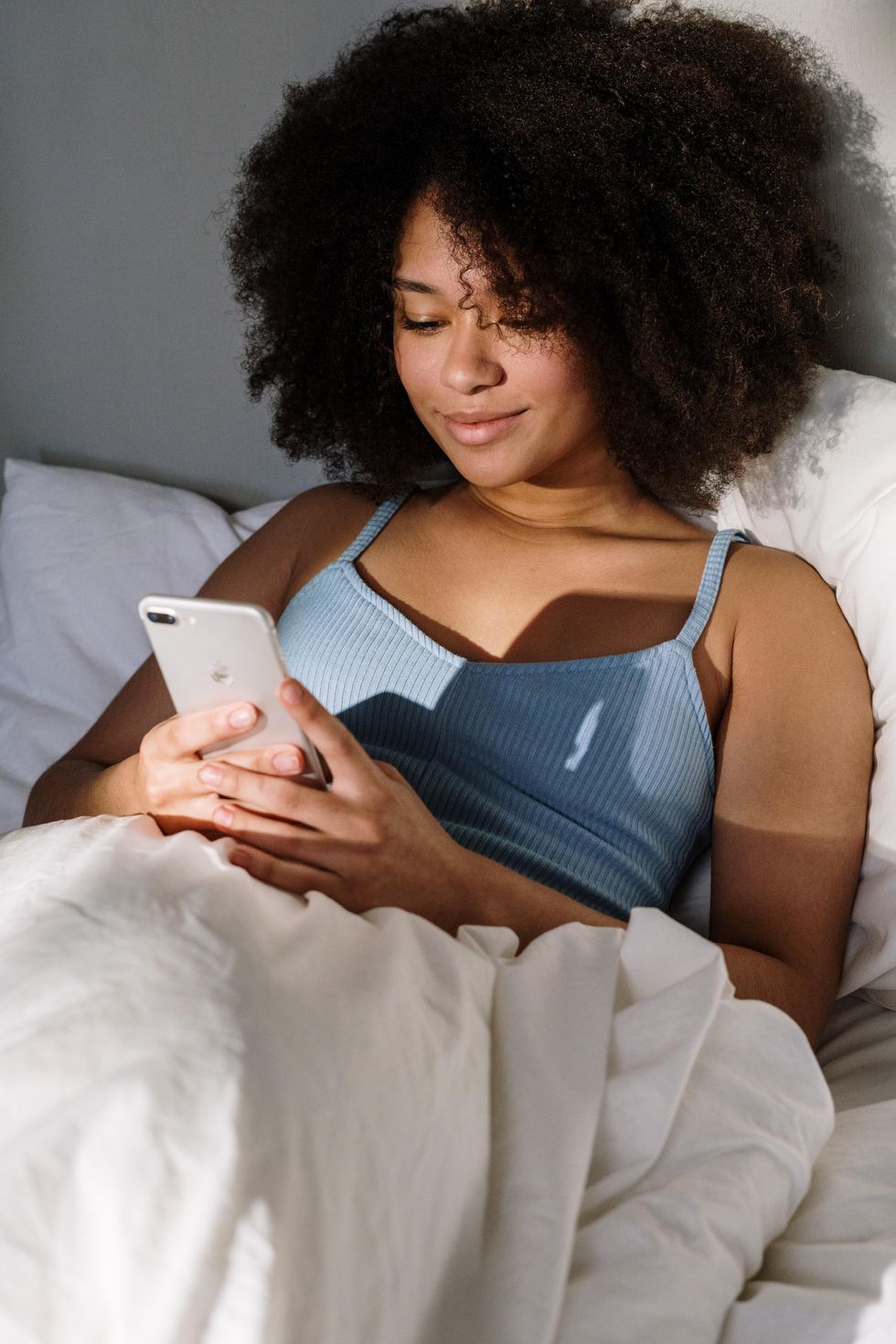
Photo by cottonbroo studios / PEXELS
On the opposite end of the spectrum, low melatonin levels are what can really keep you awake at night. And it may have something to do with all that Netflix and chilling you’re doing in bed during the chilly weather. The blue, artificial light emitted from our favorite devices while binge-watching or scrolling through Instagram before going to sleep can really mess with our circadian rhythms, therefore disrupting disrupt our body’s sense of sleeping and waking, according to new research. More research has tied blue light even closer to insomnia. “Researchers from the National Sleep Foundation have found that increased exposure to blue light from people using electronic devices before bed causes a decrease in levels of melatonin in their bodies, making it harder to fall asleep and making them less alert in the morning,” Milosavljevic says.

Photo by Anna Shvets / PEXELS
However, melatonin isn’t the only biological factor in sleep health during the winter. Because of the lack of sunlight, our vitamin D levels are also low this time of year, which can mess with sleep quality and quantity. “Low levels of vitamin D are connected to lower sleep efficiency scores,” says Carolyn Dean, a medical doctor, naturopath, and member of the Medical Advisory Board for the Nutritional Magnesium Association. “This can mean it takes a long time to fall asleep, or sleep is restless and disrupted with many awakenings in the night.”
It’s important not to let your health fall by the wayside this time of year, especially when it comes to vital vitamins and minerals. The mineral magnesium is also crucial to sleep because it helps the body process both vitamin D and melatonin correctly. “Magnesium also relieves the muscle tension that can prevent restful sleep,” says Dean.
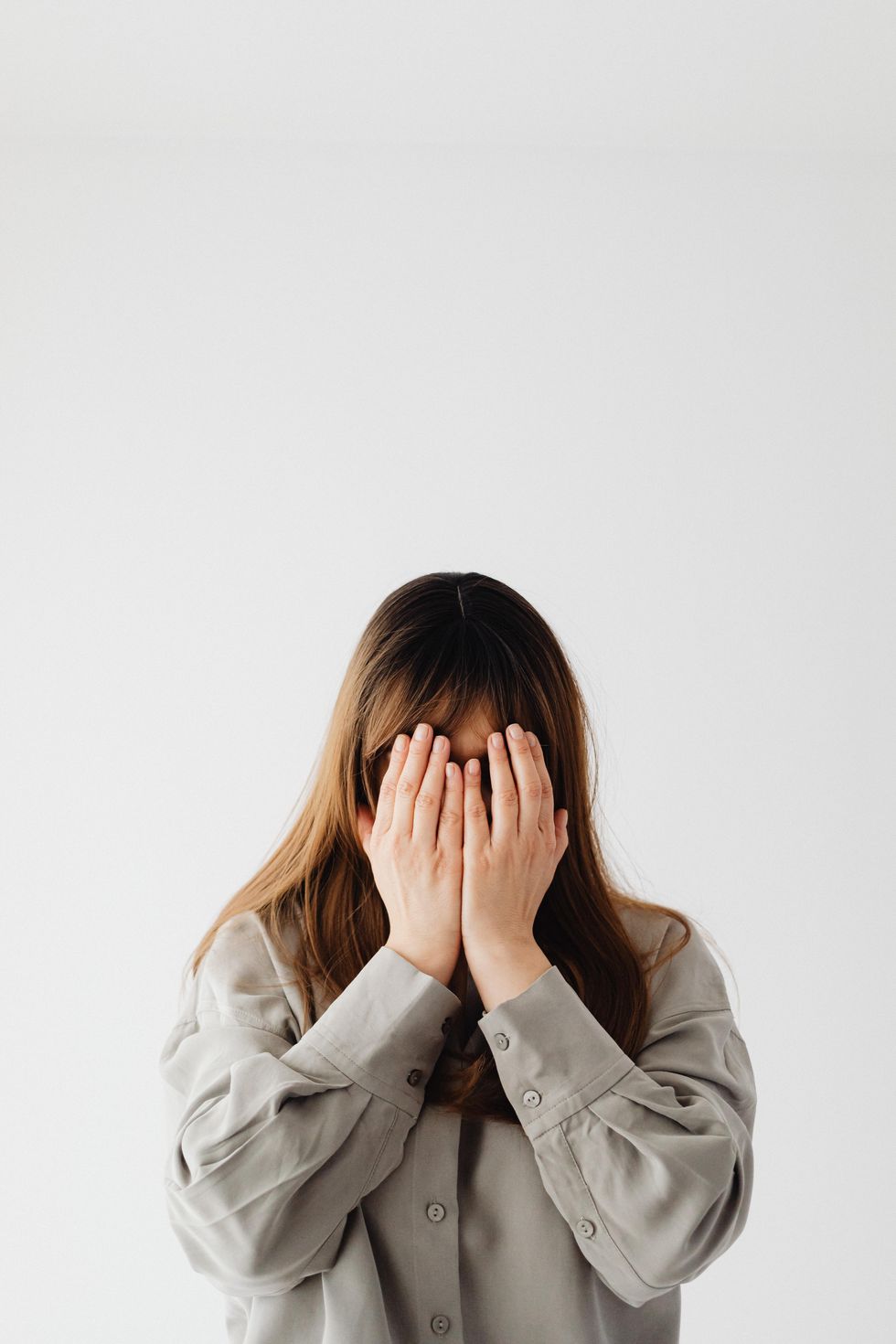
Photo bg Karolina Grabowska / PEXELS
Then, there are the usual winter habits you have, like bundling up in heavy pajamas, slippers, and blankets and cranking up the heat in your home. This can actually disrupt your sleep, says Tara Youngblood, co-founder and Chief Scientist at Kryo Inc. “If our bodies are unable to lower our core temperature, as they are naturally programmed to do, we are unable to reach optimized Slow Wave Sleep and get the benefits of more deep sleep and better sleep density,” she explains.
Don’t forget the poor diet and exercise habits you may have adopted from the influx of holiday parties you’re attending, and the shopping, baking, and wrapping, too. You may be feeling too sluggish to hit the gym when it’s cold and pitch-dark in the morning, but your eating habits play a major part also. “Holiday foods are chock-full of sugar, dense carbohydrates, and fattening ingredients. Not only can these foods affect your appetite and metabolism, but they can also interfere with the balance of a hormone called leptin, which is known to influence our sleep cycle,” Youngblood says. And, it’s high time for colds and the flu, which often cause sleep to be restless and interrupted.
Don’t blame sleeplessness on a stuffy nose or too many sugar cookies — you can’t discount the stress of the holiday season or pressure to keep your list of resolutions either. “It is likely that insomnia is further exacerbated by the financial, social, and familial stresses that often occur during and immediately after the festive period,” Lederle adds. All the more reason to step back and give yourself the gift of self-care this time of year, no matter how many people are on your shopping list.
How To Fix Your Sleep Habits
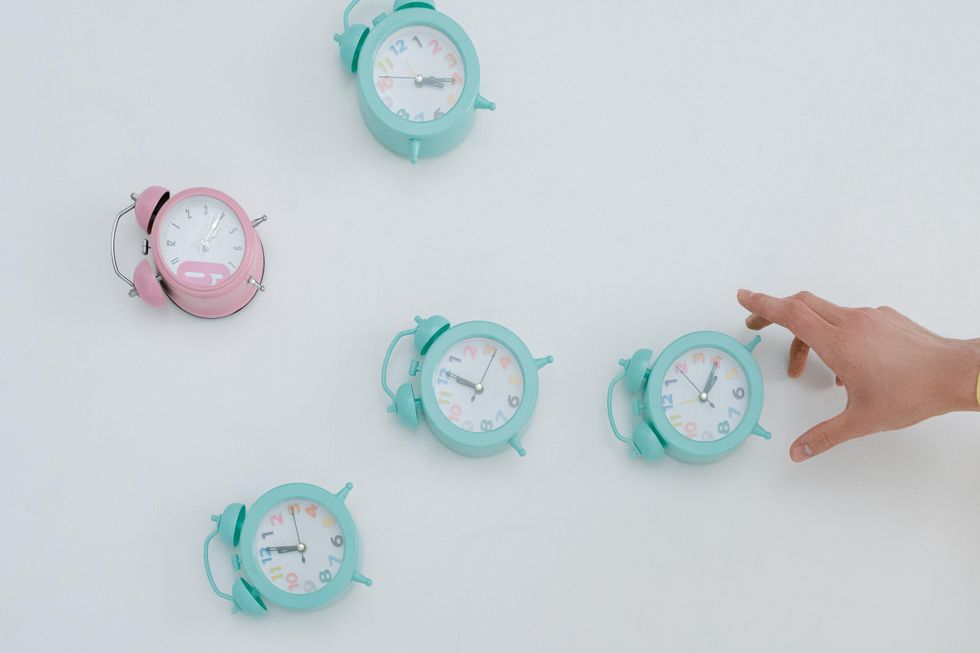
Photo by SHVETS production / PEXELS
To get yourself back on track after a stretch of insomnia, start by regulating your bedtime and wake up calls. It’s best if your phone, alarm clock, or other blue light-filled devices are nowhere near your bed, Milosavljevic says. It may seem like the oldest trick in the book, but stashing electronics and alarm clocks across the room from where you sleep can force you up and out of bed to start the day.
Sleeping habits can also improve when you take stock of the amount of vitamins and minerals you’re putting into your body. Try a vitamin D and a magnesium supplement like magnesium citrate if you’re struggling with sleep. “Magnesium citrate powder is a highly absorbable form that can be mixed with hot or cold water and sipped in the evening and throughout the day for deep, restful sleep,” Dean says. For more help drifting off to sleep, Youngblood says sleeping in cooler temperatures may help you fall asleep faster and can even give your metabolism a boost.
Many other natural remedies can help prep the body to relax and wind down; one of the body’s most instinctive is exercise. Even a moderate bedtime yoga flow can help your mind and body ease into sleep mode. “A simple pose like child’s pose can relax the body, ease muscle tension, and clear the mind from daily stresses that can impact a restful night’s sleep,” says Milosavljevic. To go along with that child’s pose, use some lavender essential oil or sip on an herbal tea, particularly one containing lavender, valerian root, and dandelion root, all geared toward combatting sleeplessness and encouraging the body to rest, she adds. If you really need some coaching, a meditation app can help, or some background sounds of white noise or nature sounds will have you in dreamland in no time.
Have you been struggling to fall asleep this winter? Tell us your favorite sleep cycle fixes on Twitter @BritandCo.
Featured image via Vladislav Muslakov/Unsplash.
This article has been updated.
- 14 Natural Sleep Aids to Help You Get Better Sleep - Brit + Co ›
- Why Amber-Tinted Glasses Could Help to Fight Insomnia - Brit + Co ›
- How to Celebrate National Napping Day - Brit + Co ›
- 5 Tricks You Can Pull on Your Brain to Fall Asleep Faster - Brit + Co ›
- How Seasonal Depression Affects Our Sleep — Brit + Co - Brit + Co ›
- Here’s How to Tell If You Have Seasonal Affective Disorder - Brit + Co ›
- Sleep Habits Around the World - Brit + Co ›
- 8 Easy Ways I’m Combatting Seasonal Depression This Year - Brit + Co ›



















